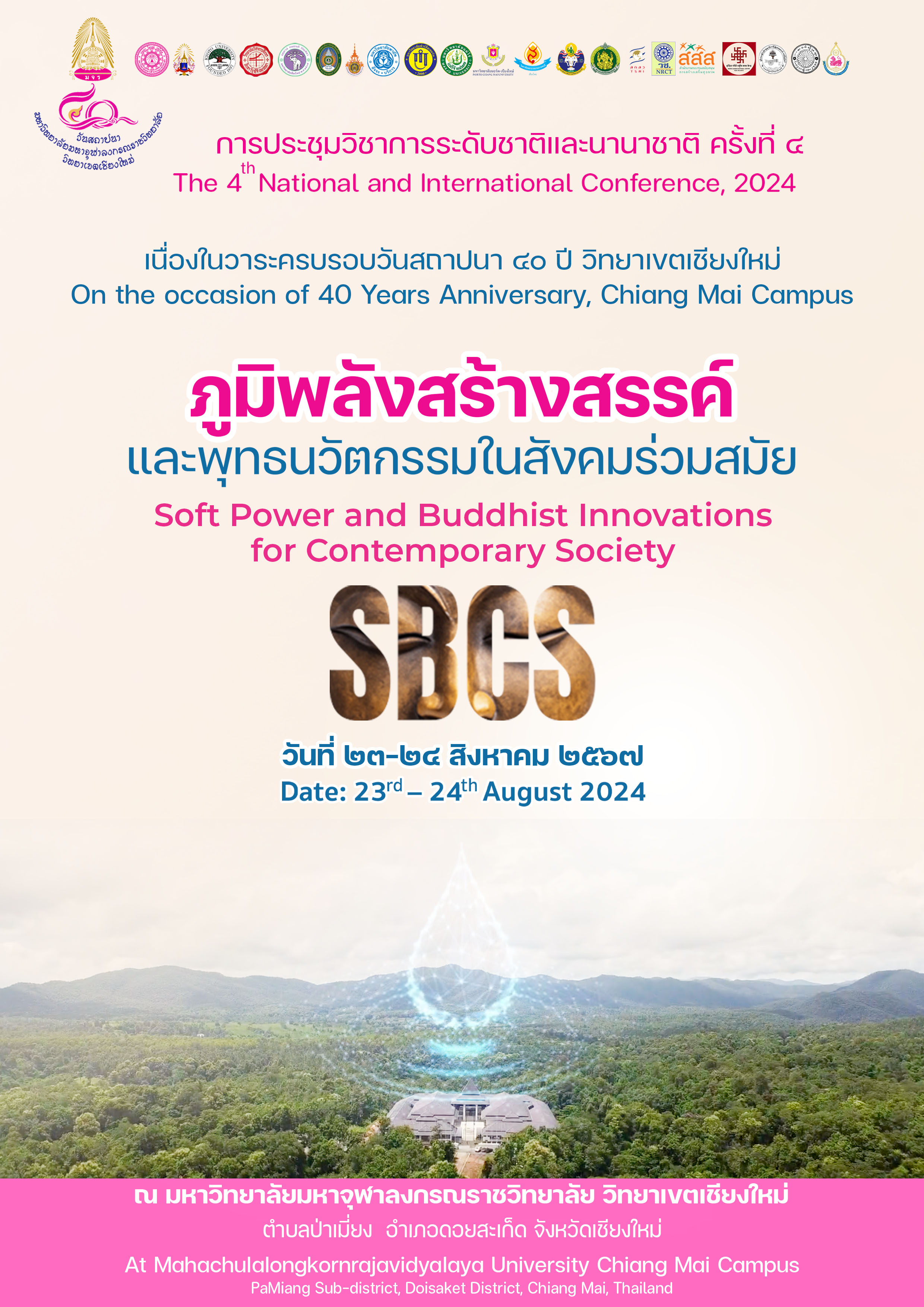Buddhist Meditation and Mindfulness Practices as Tools for Lifelong Learning
Abstract
Buddhist meditation and mindfulness practices have gained global recognition for their profound impact on mental health and overall well-being. This abstract explores the potential of these ancient techniques as tools for lifelong learning. Rooted in the rich traditions of Buddhism, meditation and mindfulness offer more than just stress reduction; they foster a deep sense of awareness, concentration, and emotional regulation, which are essential skills for continuous personal and professional development.
The practice of mindfulness involves maintaining a moment-by-moment awareness of thoughts, emotions, bodily sensations, and the surrounding environment. This heightened state of awareness promotes cognitive flexibility, resilience, and creativity, crucial attributes in an era characterized by rapid technological advancements and constant change. Similarly, meditation practices, such as Meditation practices, such as Vipassana (insight meditation) and Samatha (calm meditation), cultivate inner peace, compassion, and a balanced mind, further enhancing oneís ability to learn and adapt.
This paper argues that integrating Buddhist meditation and mindfulness into educational frameworks can revolutionize the learning process. By developing a mindful approach to learning, individuals can enhance their focus, reduce anxiety, and improve memory retention. Furthermore, these practices encourage a reflective learning style, enabling learners to connect deeply with the material and derive meaningful insights.
Empirical studies support the efficacy of mindfulness and meditation in educational settings. Research indicates that students who engage in regular mindfulness practice exhibit improved academic performance, better emotional regulation, and increased empathy. Educators can also benefit from these practices by fostering a calm and focused classroom environment, leading to more effective teaching and learning experiences.
In conclusion, Buddhist meditation and mindfulness practices are invaluable tools for lifelong learning. They not only enhance cognitive and emotional capabilities but also promote a holistic approach to personal growth. By embracing these practices, individuals can navigate the complexities of modern life with greater ease and continue to learn and grow throughout their lives. This paper highlights the transformative potential of integrating mindfulness and meditation into educational systems, advocating for a shift towards a more mindful, compassionate, and effective learning paradigm.
References
Kimberly A. Schonert-Reichl, Robert W. Roeser. (2516). Mindfulness in Education: Introduction and Overview of the Handbook. in
Handbook of Mindfulness in Education Integrating Theory and Research into Practice. Schonert-Reichl, K.A.: Roeser, R.W. (Eds.).
Britta K. Hölzel, James Carmody, Mark Vangel, Christina Congleton, Sita M. Yerramsetti, Tim Gard and Sara W. Lazara. Mindfulness practice leads to increases in regional brain gray matter density. Psychiatry Res. 2011 Jan 30; 191(1): 36–43. https://www.sciencedirect.com/science/article/pii/S092549271000288X?via%3Dihub
Jha AP, Krompinger J, Baime MJ. Mindfulness training modifies
subsystems of attention. Cognitive Affective and Behavioral Neuroscience. 2007;7:109–119. https://link.springer.com/article/10.3758/cabn.7.2.109
Kamila Dvořáková, Mark T. Greenberg, and Robert W. Roeser. On the Role of Mindfulness and Compassion Skills in Students’ Coping, Well-being and Development across the Transition to College: A Conceptual Analysis. Health. 2019 Apr; 35(2): 146–156.https://www.ncbi.nlm.nih.gov/pmc/articles/PMC6491916/
Otto Simonsson, Christine Bergljottsdotter, Jayanth Narayanan, Stephen Fisher, Jamie Bristow, Ruth Ormston, and Richard Chambers. Mindfulness in Politics: A Qualitative Study on Mindfulness Training in the UK Parliament. Mindfulness (N Y). 2023 May 29 : 1–9. https://pubmed.ncbi.nlm.nih.gov/37362193/
Stefan G. Hofmann, Alice T. Sawyer, Ashley A. Witt, and Diana Oh. The Effect of Mindfulness-Based Therapy on Anxiety and Depression: A Meta-Analytic Review. J Consult Clin Psychol. 2010 Apr; 78(2): 169–183. https://www.ncbi.nlm.nih.gov/pmc/articles/PMC2848393/
Hélène Poissant, Adrianna Mendrek, Nadine Talbot, Bassam Khoury, and Jennifer Nolan. Behavioral and Cognitive Impacts of Mindfulness-Based Interventions on Adults with Attention-
Deficit Hyperactivity Disorder: A Systematic Review.Behav Neurol. 4 April 2019. https://pubmed.ncbi.nlm.nih.gov/31093302/
Michael T. Warren, Kimberly A. Schonert-Reichl, Randip Gill, Anne M. Gadermann, and Eva Oberle. Naturalistic development of trait mindfulness: A longitudinal examination of victimization and supportive relationships in early adolescence. PLoS One. 2021; 16(5): e0250960.https://www.ncbi.nlm.nih.gov/pmc/articles/PMC8104379/
Abdul Manan H, Mir IA, Humayra S,Tee RY and Vasu DT (2024). Research. Effect of mindfulness-based interventions on anxiety, depression, and stress in patients with coronary artery disease: a systematic review and meta-analysis of randomized controlled trials. Front. Psychol. 15:1435243. doi: 10.3389/fpsyg.2024.1435243

